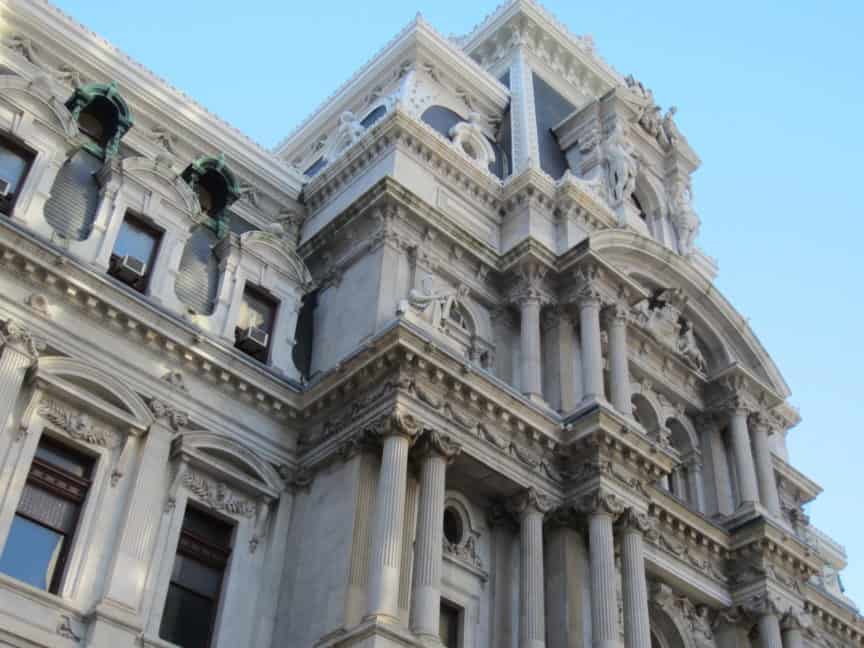PHILADELPHIA, PA – City Council leaders today announced major, new legislation to generate $400 Million in bond revenue which will be used to fund citywide investments in affordable housing, poverty reduction and job creation.
Council introduced a 1 percent Construction Impact Tax, which will be imposed on the privilege to build any structure – residential, commercial or industrial – for which a building permit is required.
Revenues from the Construction Impact Tax would be used to fund a wide array of essential city programs that focus on affordable housing and neighborhood revitalization, including the production of new and preservation of existing affordable housing, eviction prevention, adaptive home modification, rental assistance, permanent housing for homeless individuals, neighborhood commercial corridor investment and other initiatives.
“In June, City Council passed a New Normal Budget Act that was a first step towards addressing some of the social ills and racial disparities magnified by the COVID-19 pandemic and the unrest,” said Council President Darrell L. Clarke (5th District). “Our announcement today builds on the New Normal Act and the recommendations in Council’s Poverty Action Plan released in March. There is no time to wait. Poverty is growing, and these needs are urgent. We need to act now to fund programs that will create a more prosperous future for every Philadelphian, rather than a select few.”
Today’s proposal, introduced by Council Majority Leader Cherelle Parker (9th District) on Council President Clarke’s behalf, proposes to capitalize revenue streams, including the 1 percent Construction Impact Tax, by issuing $400 million in new bonds.
“We can’t sit by idly during this time and wait for someone to come to our rescue; we must be proactive,” Parker said. “This legislation will generate close to a half billion dollars that will impact the lives of our most vulnerable residents who have been hurt most directly by the coronavirus. It will help those in poverty to rise out of it, prevent those living on the margins from falling further behind, and create sustainable jobs and opportunities for those who need them the most right now.”
Thursday’s announcement, at a planned affordable housing site in North Philadelphia, builds on other steps already taken by Council to expand resources for affordable housing and commercial corridor stabilization:
- Establishing the Housing Trust Fund, which receives revenue from a special recording fees on mortgages and deeds;
- Issuing a $100 million bond to eliminate a Basic Systems Repair backlog, and provide low interest home improvement loans through a .1% increase in the Real Estate Transfer Tax;
- Securing a $20 million annual commitment to the Housing Trust Fund, funded by Property Tax revenue from properties whose 10-Year tax abatement has expired;
- $10 Million for commercial corridor cleaning and façade improvements.
Despite these steps, many Philadelphia residents are facing significant challenges, including a lack of access to affordable housing, rental assistance, eviction protection, and other issues. Those steep challenges prompted today’s legislation.
“Less than a week before the pandemic shutdown, we issued a Call to Action with City Council’s Poverty Action Plan, outlining the need for aggressive investments in historically disadvantaged, minority communities,” said Councilmember Maria Quiñones Sánchez, a co-chair of the Poverty Task Force. “This is another step in our commitment to combat poverty, invest in an equitable recovery from the pandemic, and build a better New Normal for Philadelphia.”
Even before the pandemic, studies showed that one out of every four Philadelphians were living in poverty. Earlier this week, the International Monetary Fund (IMF) warned of “a recovery gap between rich and poor” without policies in place to ensure equitable investment. With that in mind, Councilmembers are seeking to develop initiatives that create a more prosperous future for every Philadelphian.
“This legislation will provide funding for affordable housing that our City desperately needs, as well as resources for commercial corridors,” said Councilmember Mark Squilla (1st District), Council’s Deputy Whip. “The COVID-19 pandemic decreased housing options for those already in challenging situations, and negatively impacted small businesses in our neighborhoods. The money will allow us to better meet the needs of those struggling to live and work in Philadelphia.”
“There are hundreds of older apartment buildings that were established for affordable housing that are now aging out of their original agreements,” said Councilmember Curtis Jones Jr. (4th District), Council’s Majority Whip. “The Pavilion and Brith Shalom are two examples. This puts residents in jeopardy due to rent increases in rent and states of disrepair due to deferred maintenance. These funds can acquire or provide preservation dollars to prevent homelessness.”
Once the Construction Impact Tax is approved and considered by the mayor, and bonds are issued, the proceeds would be distributed among city affordable housing and commercial revitalization programs. In addition, some resources would be dedicated to rehabilitating 871 structures currently under public ownership and making them available for rent, lease purchase, or sale to low- and moderate-income households.
City Council’s budget and technical staff are also projecting that the Construction Impact Tax will yield on average $20 Million to $26 Million in revenue per year.
At the same Meeting in which the Construction Impact Tax was introduced, other legislation was introduced by Councilmember Bobby Henon (6th District) that would delay implementation of changes to the city’s Real Estate Tax Abatement program by three years, to a new implementation date of December 31, 2023.
“The lack of access to affordable housing, health care, living wage jobs and healthy foods has been exposed by COVID-19 and the unrest in our city and country this year,” Clarke said. “We cannot go back to that old normal. We need to create a ‘New Normal’ and address these disparities head on. I believe the steps we’re proposing today are critical towards our doing that.”
###


